I’m finally getting around to gathering all the details for this amazing dresser I did a few weeks back. There was a lot going on during this makeover because this was the first time I had used a spray gun on a large piece.
Before I begin, let me say this project had its fair share of issues. This was a huge learning curve for me because I’m so used to painting by hand, that I think I made up for the time saved in spraying by going back over my work and fixing my mistakes.
This post contains affiliate links.
Let’s take a look at this dresser:
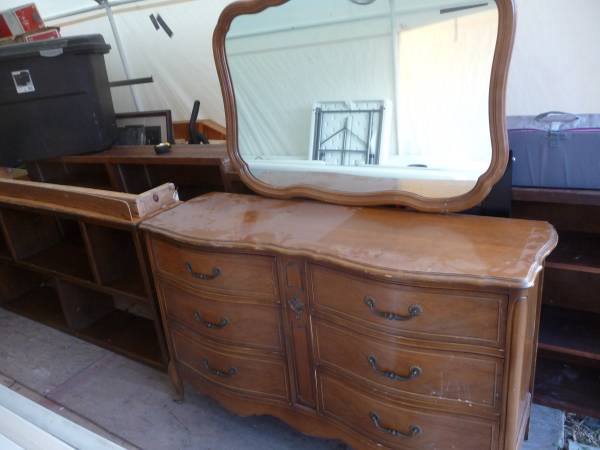
This is the before. It’s a large French Provincial style dresser, solid cherry wood, and had some minor wear and tear. It was extremely heavy and we had to do some maneuvering in my vehicle because it was a large piece.
Issue #1: We sanded this piece, but did not do a full strip. We were going for sanding out the scratches and wear & tear vs. removing the previous finish completely. As a result, we ended up in dry/bare spots across the top and drawers. We sanded enough to give the paint something to stick to, but we should have sealed this piece with a sanding sealer prior to painting. If you have never used a sanding sealer before, it’s wonderful for leveling out an uneven surface.
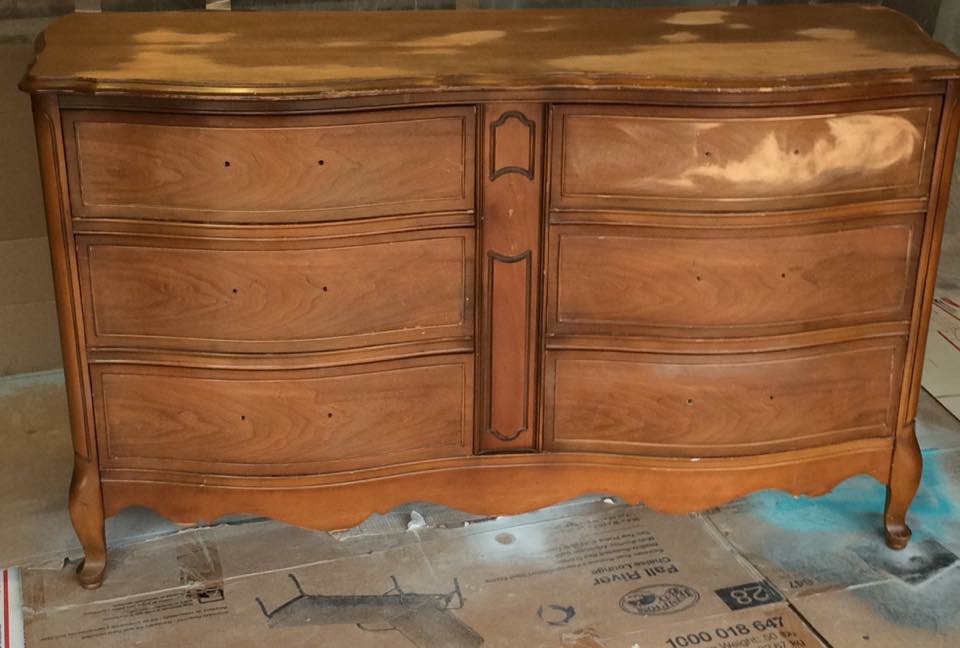
As a result, those bare spots absorbed the paint completely differently than the rest of the piece, as evident in the picture below. We fixed this, by applying, multiple coats of spray shellac to seal the bare spots, sanding and repainting.
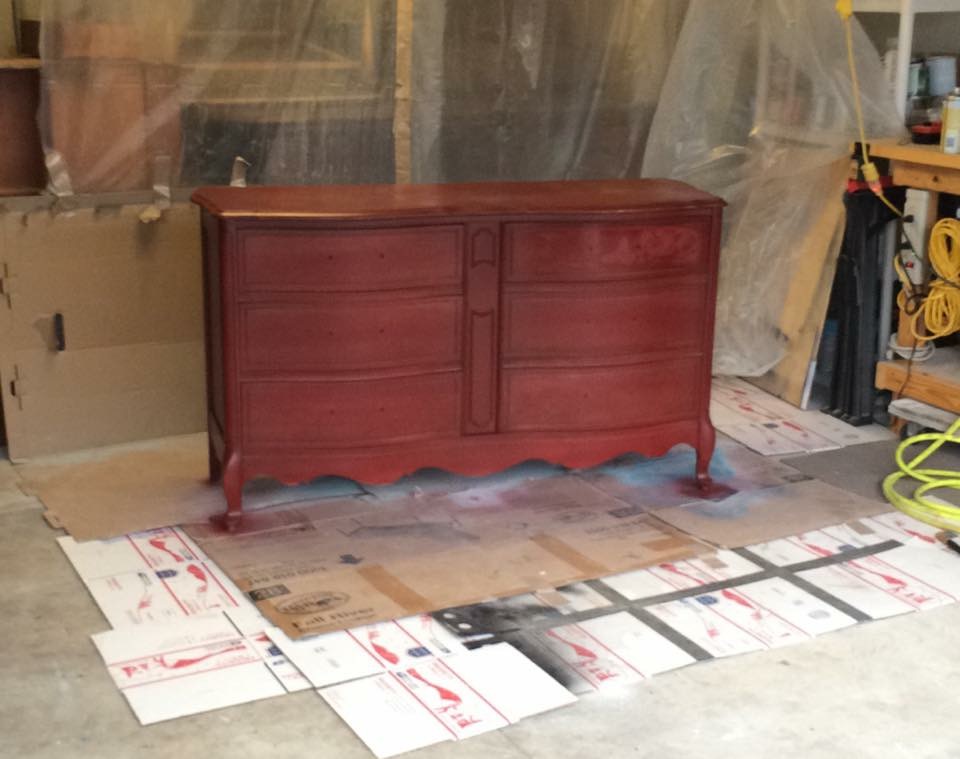
Issue #2: Assuming the paint self-levels the same via sprayer as it does by hand painting was the biggest pain in my butt! I’ve had such wonderful results with General Finishes products because their paint and poly self levels reducing brush stroke marks. I assumed that spraying it would have the same results, but it was my error that prevented that. Part of the problem, is that we went by the box directions on the Critter Sprayer to have the PSI up to 80 as recommended. In reality it should have been at about 45 PSI and here is why:
- When the paint is siphoned from a gun like the Critter sprayer, the compressor atomizes the paint, losing some moisture in the process. Because my PSI was too high, my paint was half dry, prior to even hitting the piece! By the time it was sprayed onto the piece, it lost the majority of it’s moisture not allowing it to level.
- The second part of the problem, was that I was not sanding between coats because to my eye…the finish looked smooth and flawless. Running my hand across the top after both these issues, you’d think this was a sanding block because of how rough and gritty the surface was.
- After doing some research, I corrected both these issues by reducing the PSI in the compressor to 45 PSI, and by…you guessed it, sanding back my paint job.
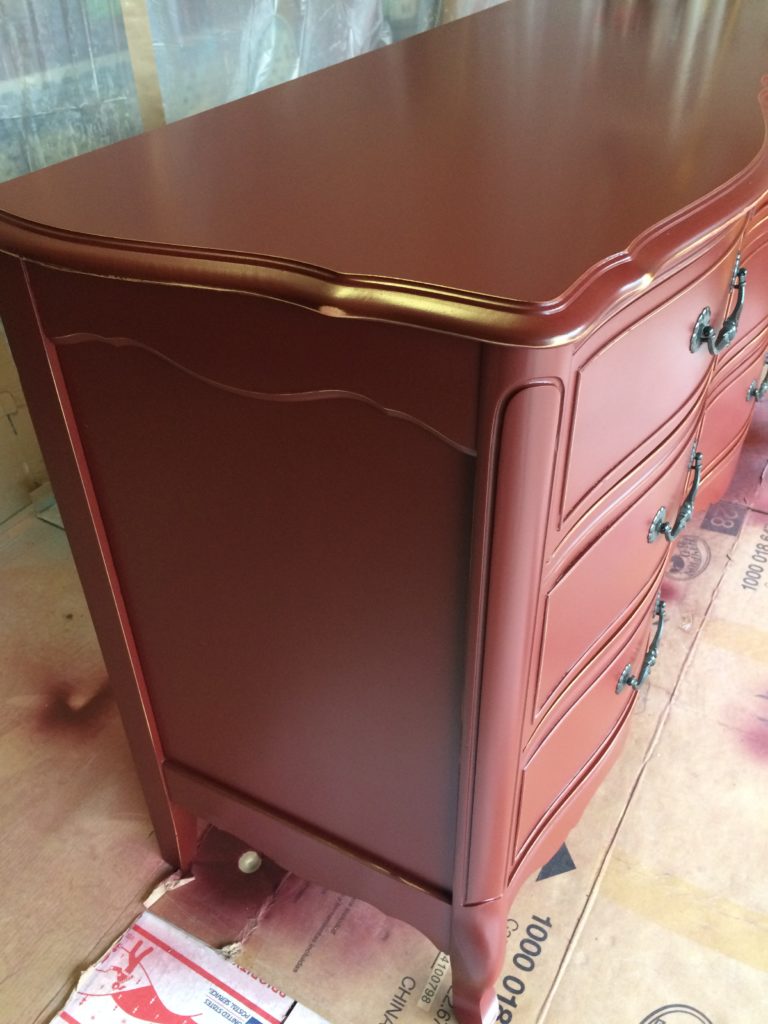
Here is what it looked like after reducing PSI, AND sanding between every coat. The results were a smooth, mirror like finish!
Issue #3: Flashing and uneven sheen. This has to be the worst for spray painting. This is more of a technique issue than it is an issue with the gun itself. I found that in the light, the finish and sheen of the poly looked streaky, darker in some spots than others and you could see the line of “spray.” I fixed this by light sanding with a 320 grit sandpaper, applying a coat of poly using a good quality foam brush by hand to give it an even surface, sanding again with 320 and then very carefully watching my technique. My issue was I was moving across the plane too quickly and my distances from gun to piece were not even. So, I moved across slowly, counting to 3 for every spray I did, and watching my distance. I also did a one inch overlap in my spray pattern which helped to correct the flashing.
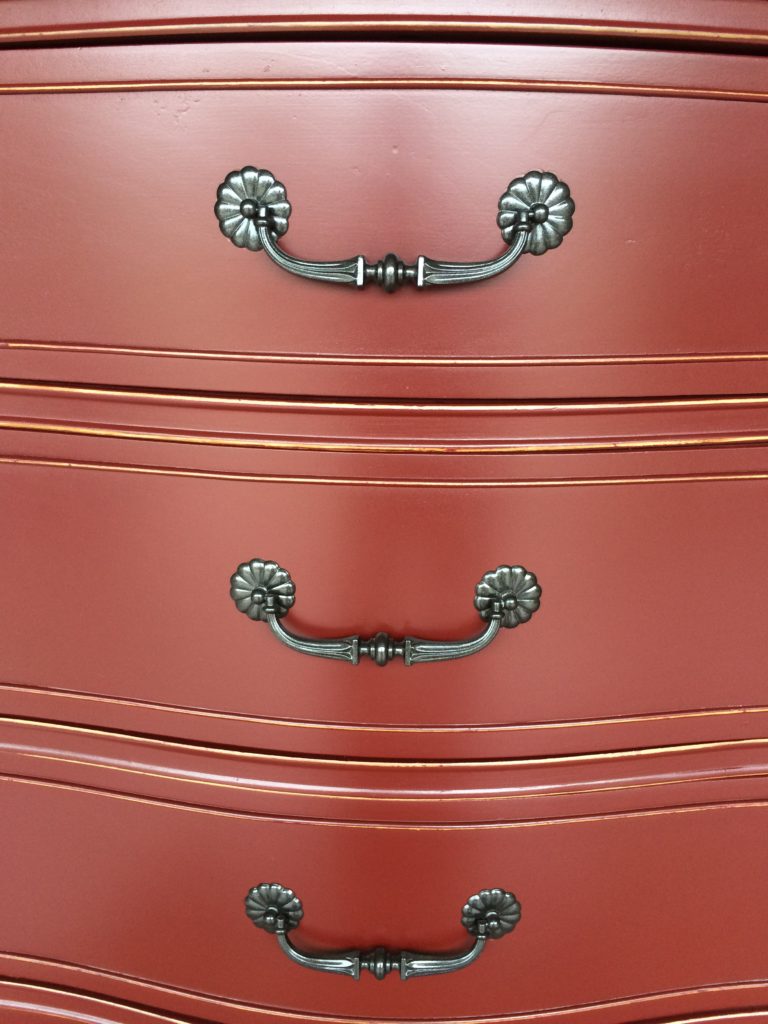
So here is the final product! I love how it turned out, even with all the issues and setbacks. My client wanted a deep, crimson red with some distressing. I used General Finished products for this recipe:
2 Parts Holiday Red Milk Paint
I call it “Sangria Red.”
All in all this piece has about 7-8 coats of paint, and it was sealed in HPTC in Satin.
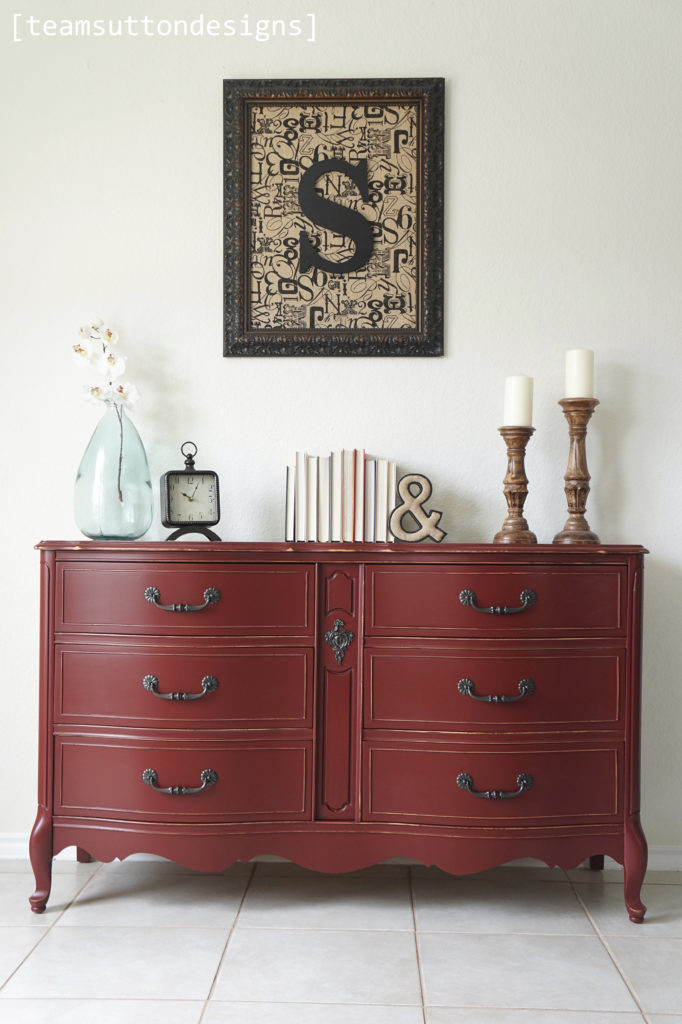
I updated the hardware and escutcheon in oil rubbed bronze.
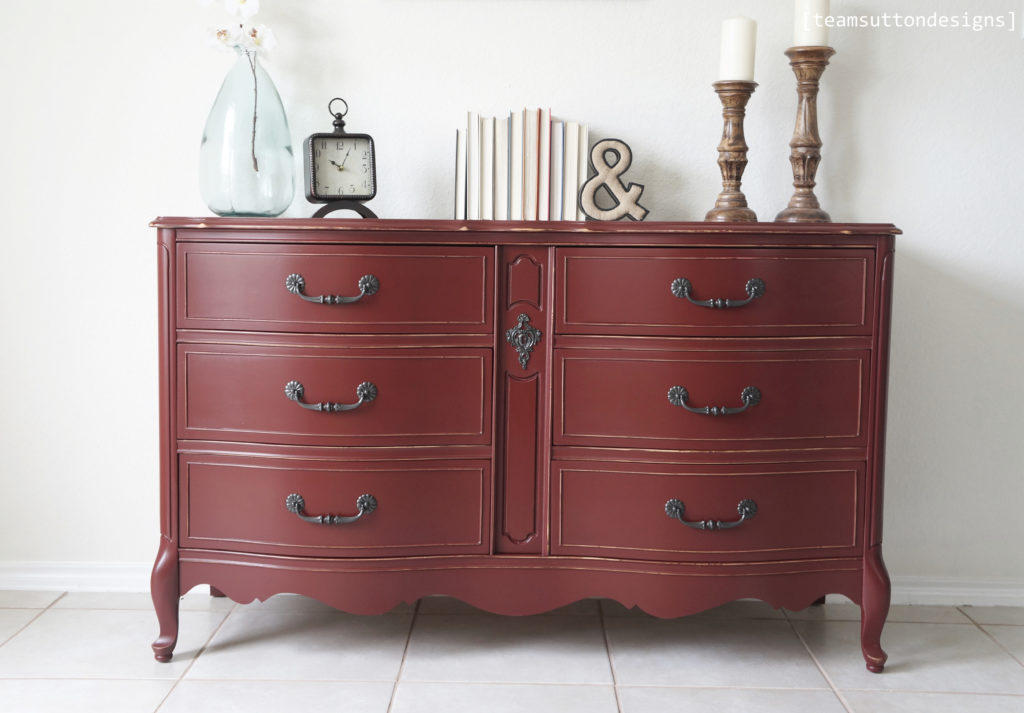
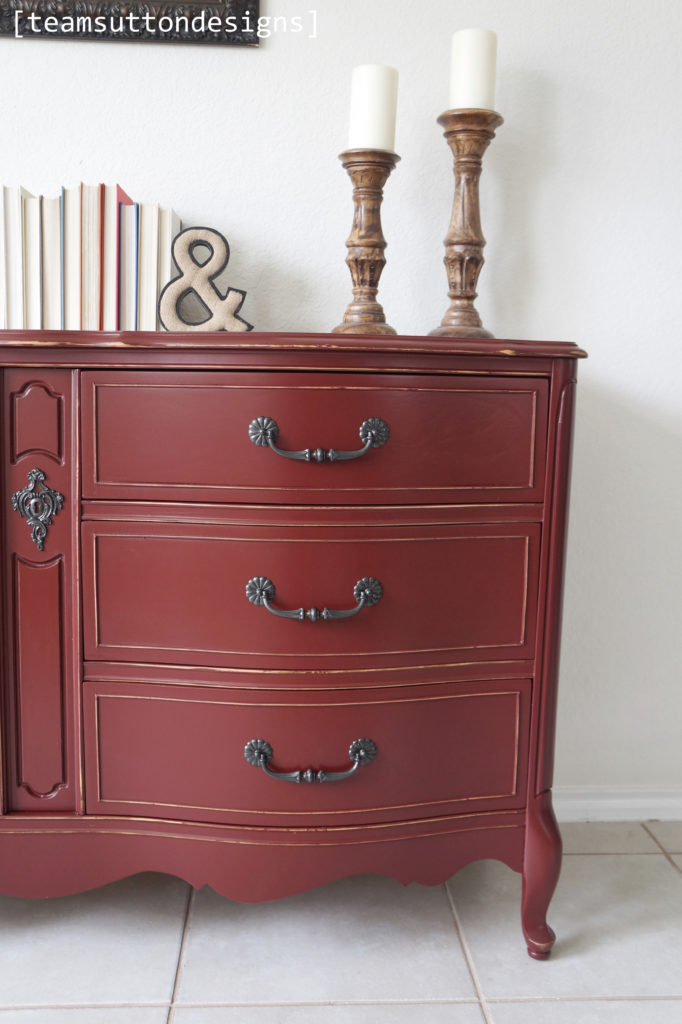
Here is better shot of the distressing and the shine of the top!
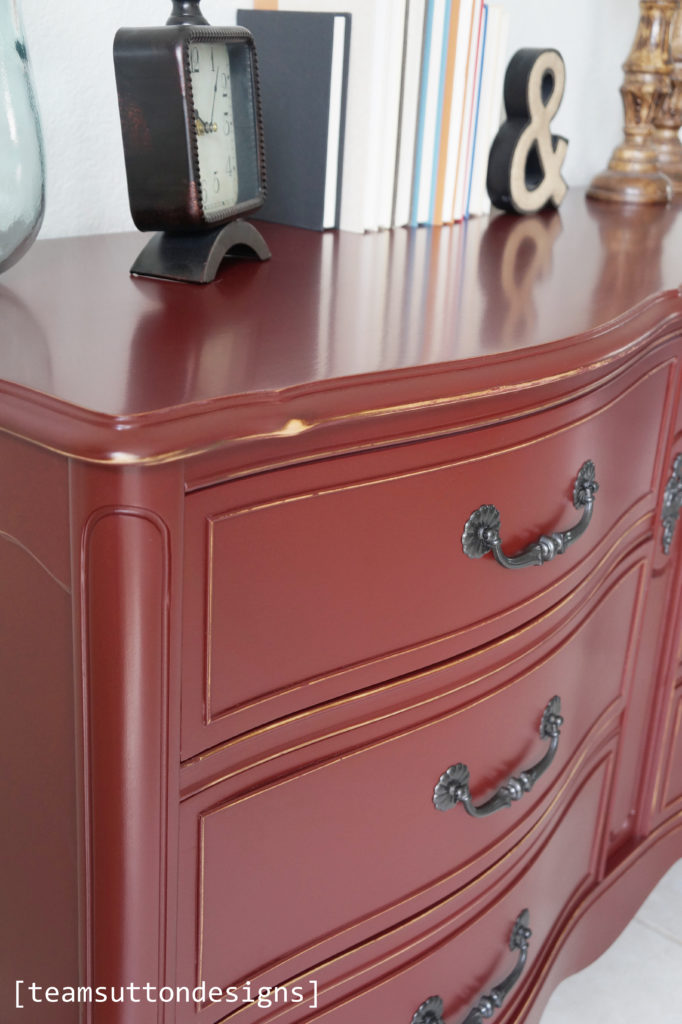
All in all, my client was happy, so that makes me happy! And the color was such a huge hit with my followers that General Finishes asked to share the recipe in their Design Center! Spray painting is still something to get used to and in my next blog post I’m going to do a review of the Critter. I always like to try things a few times before giving a full assessment. So keep checking back to stay updated!
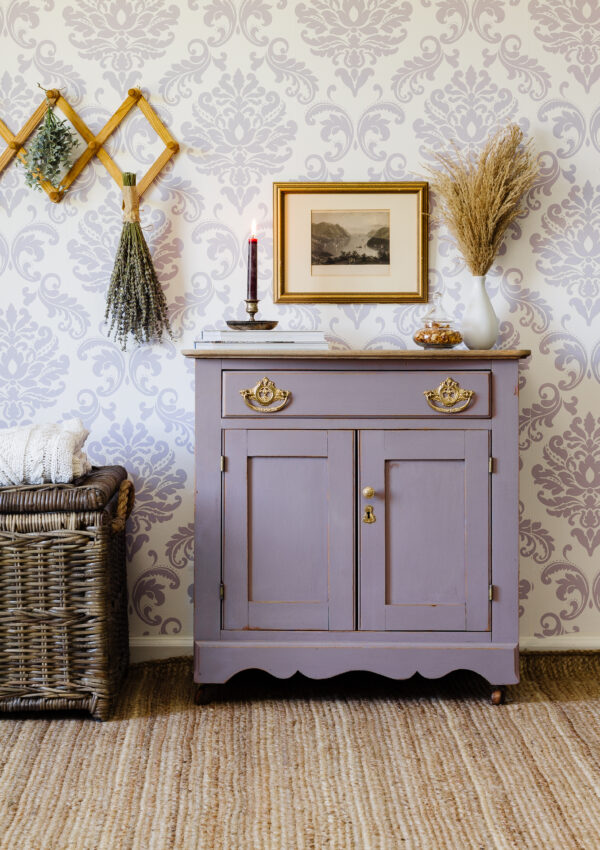
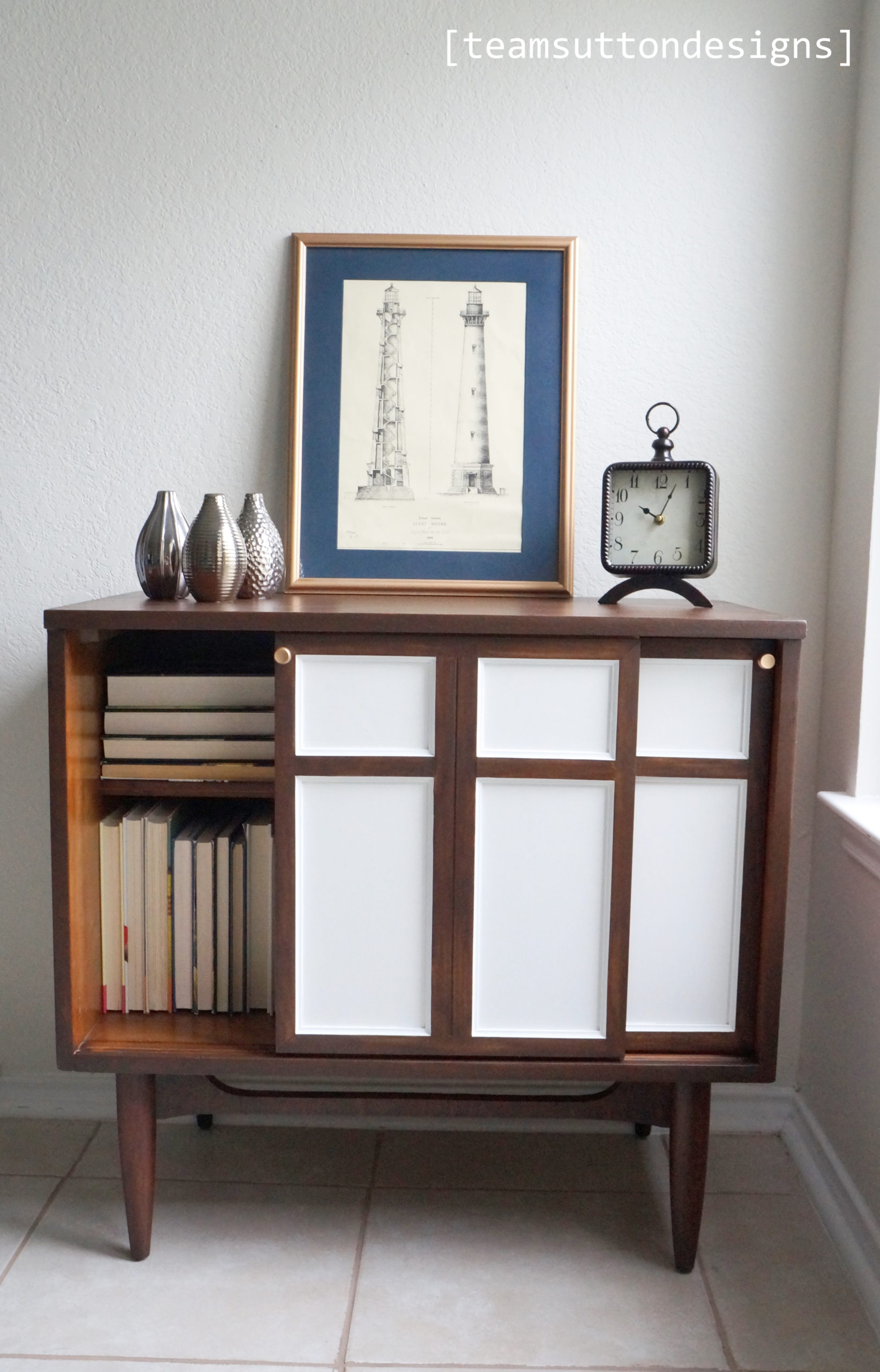
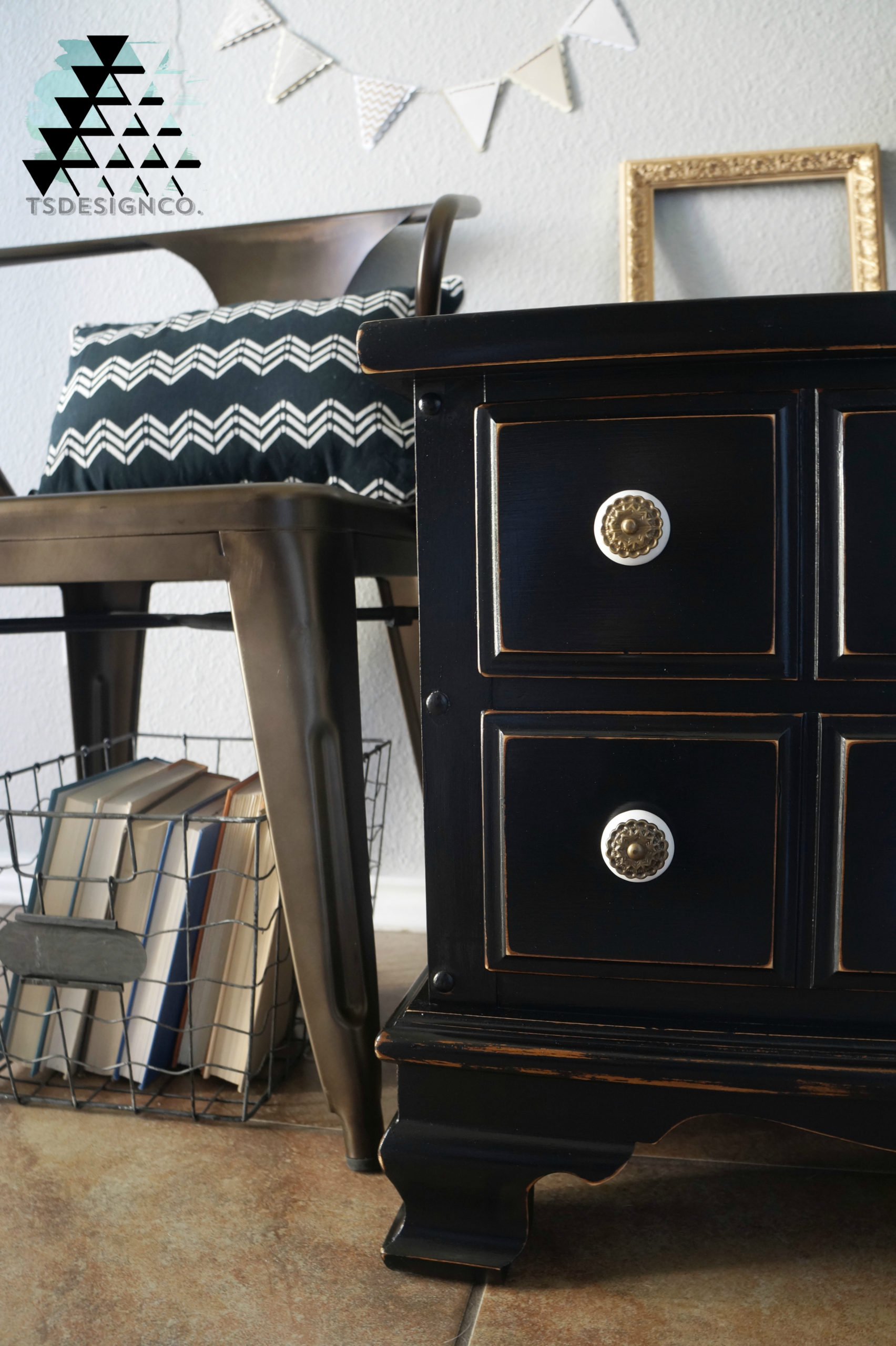
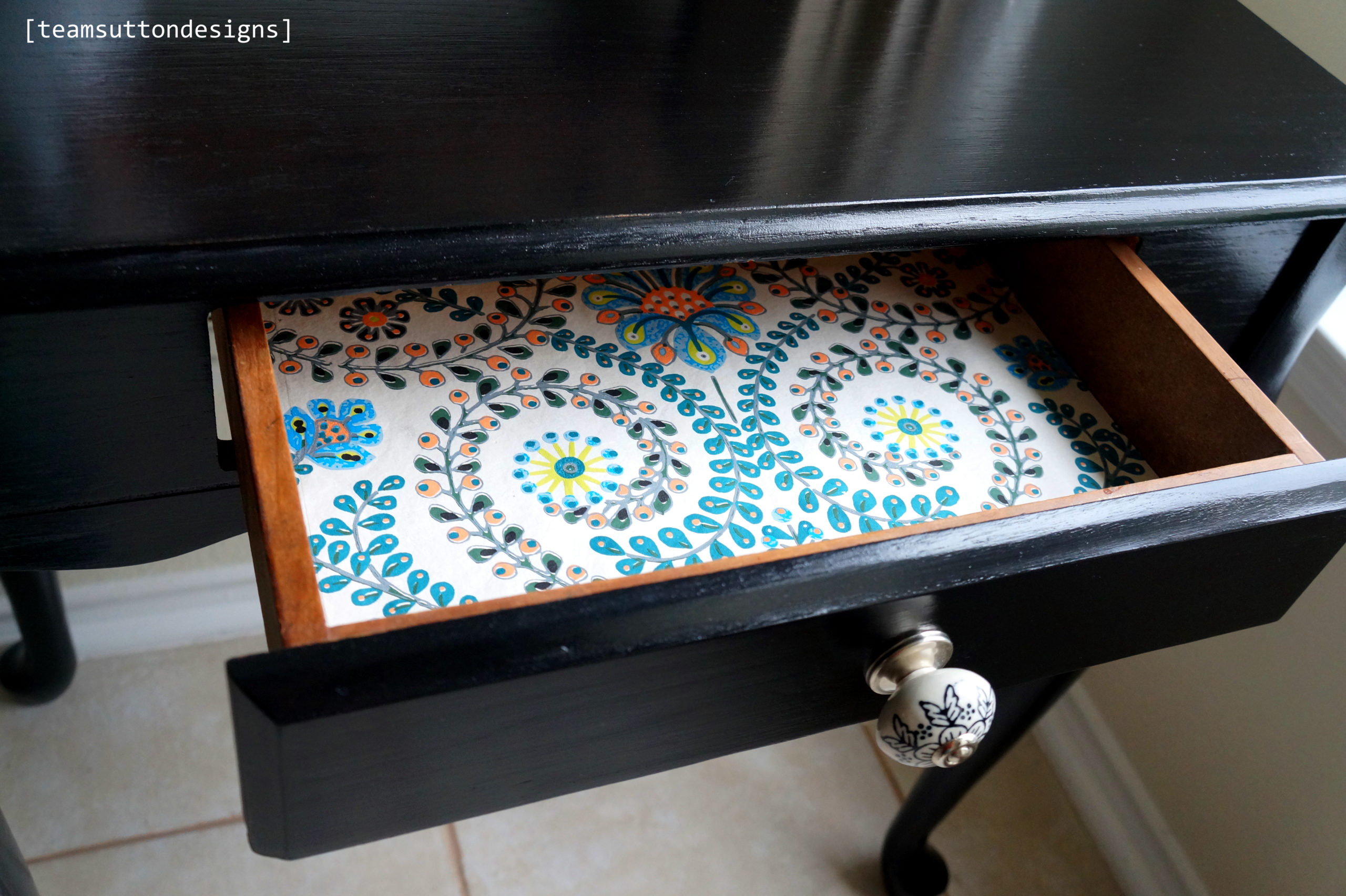
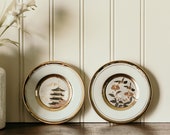

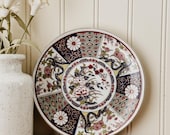

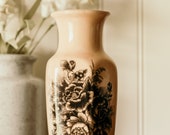
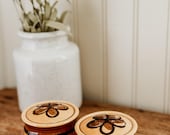
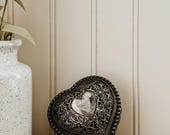
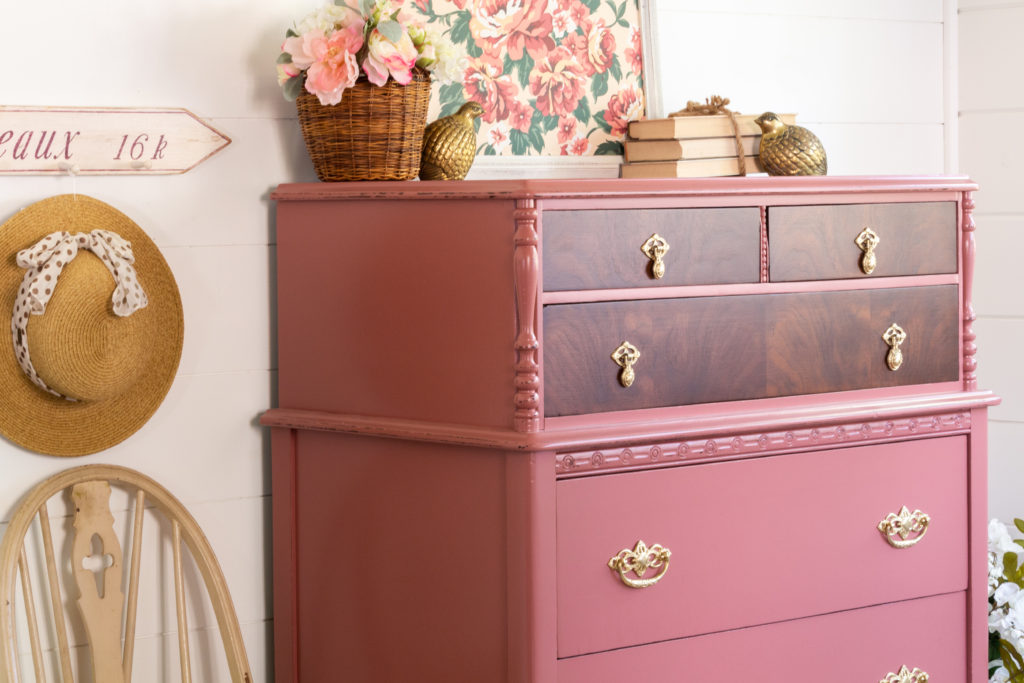

Gorgeous! What is HPTC?